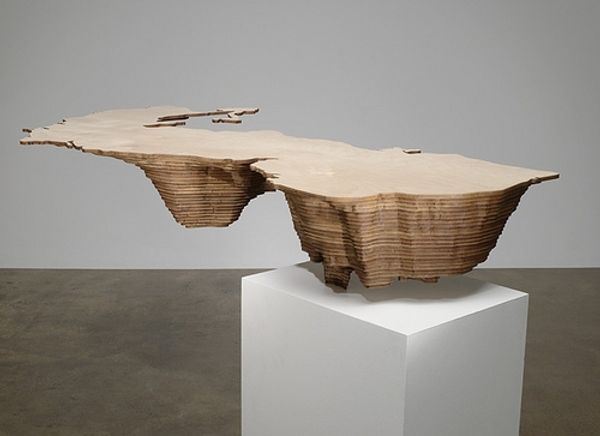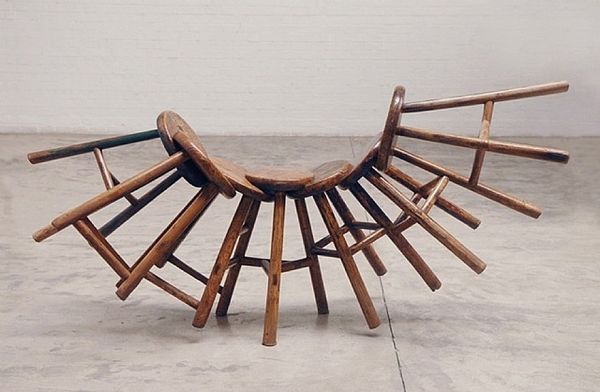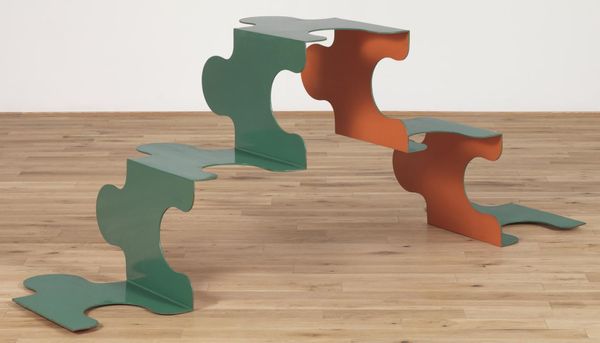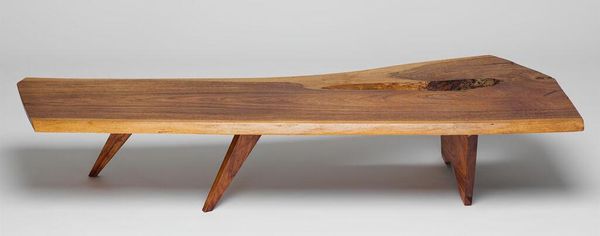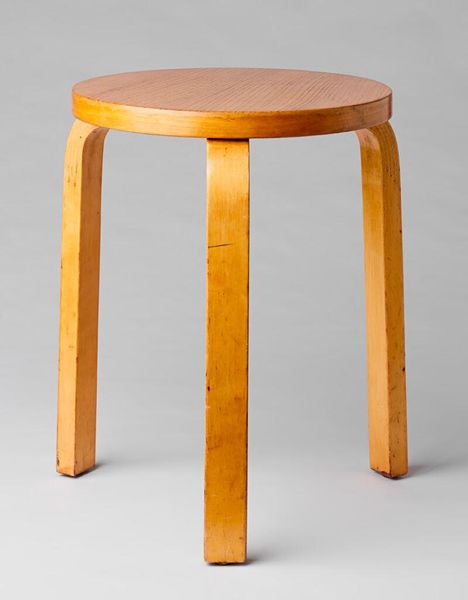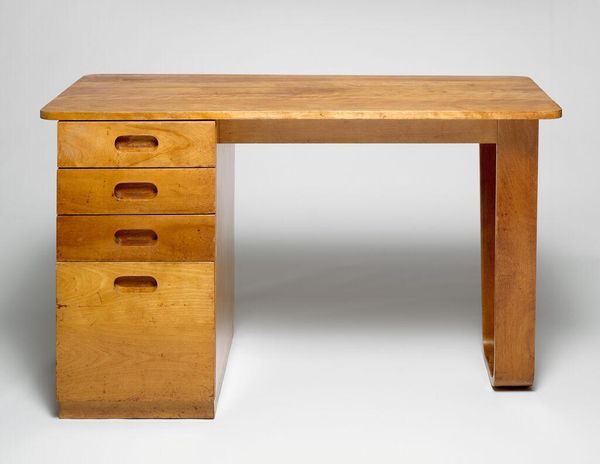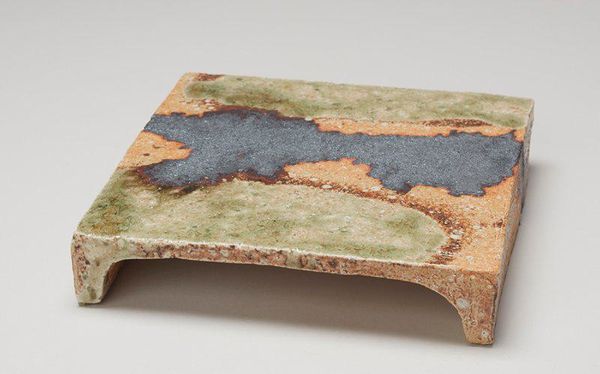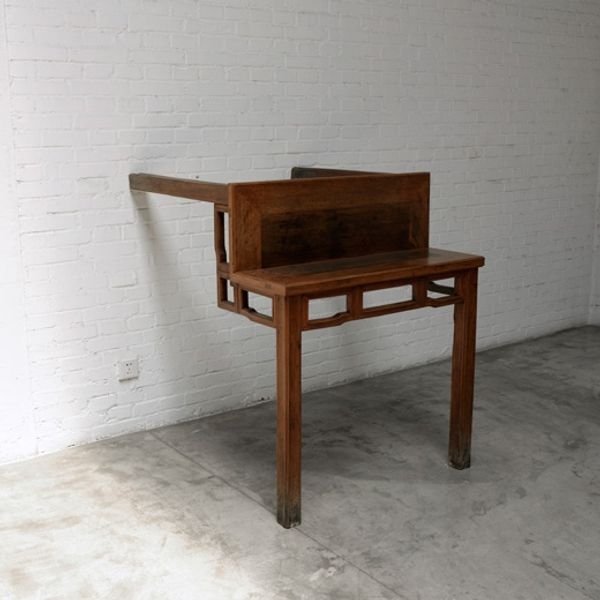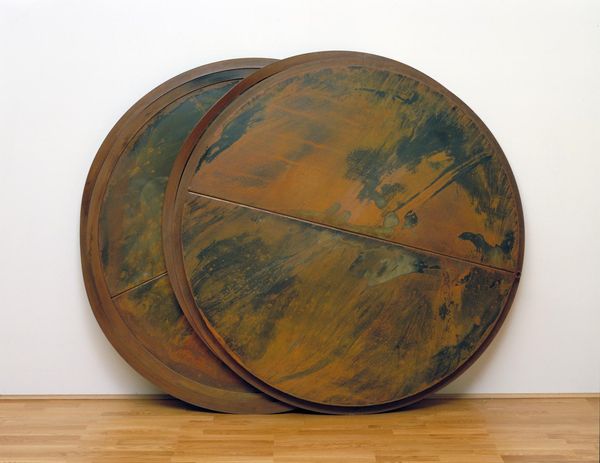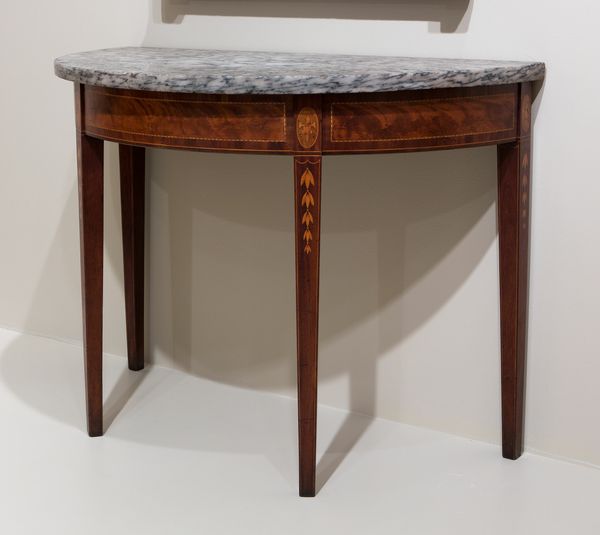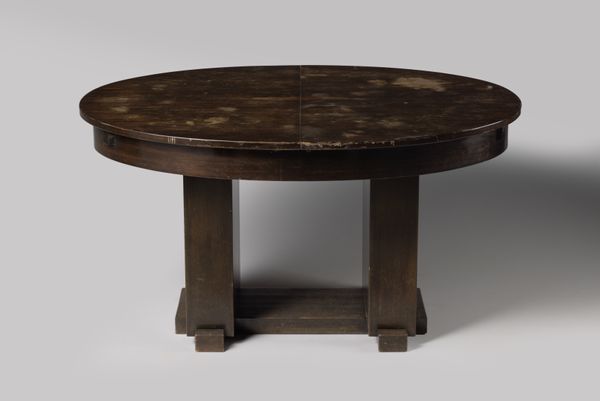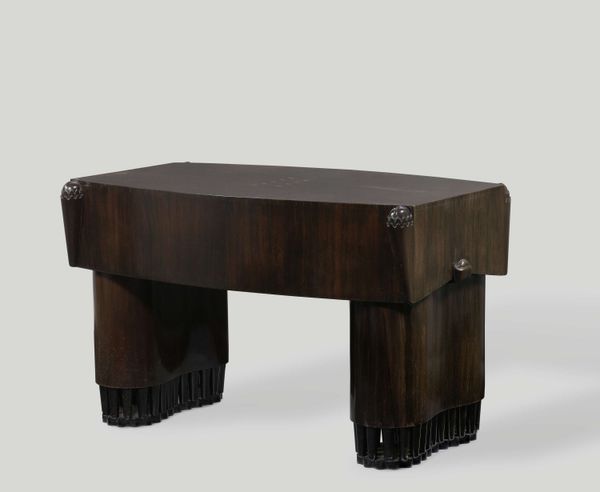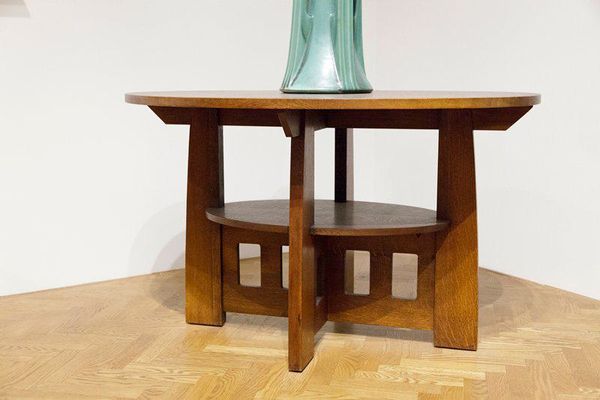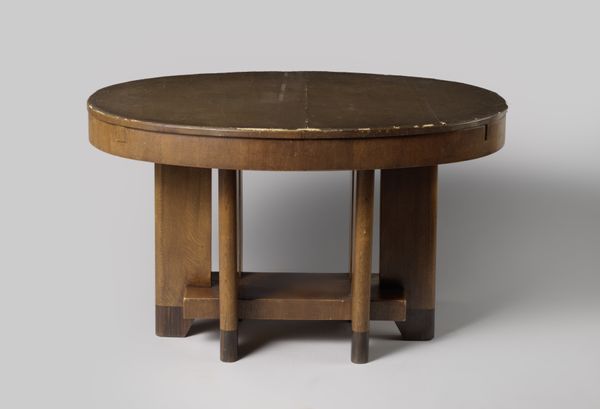
Copyright: Ai Weiwei,Fair Use
Curator: Looking at Ai Weiwei's "Map of China" from 2008, I'm immediately struck by its groundedness. Literally. The use of wood, this massive, solid form... it feels so rooted. What's your initial impression? Editor: Well, it hits me as powerfully melancholic. The choice to use what appears to be salvaged wood, formed into a national symbol, hints at fractured history. Like piecing together something immense from broken remnants. Curator: Exactly! It’s about material history and transformation. Ai Weiwei sourced reclaimed wood from demolished temples during China’s rapid urbanization. The act of repurposing isn’t just aesthetic; it critiques the state’s relentless push toward modernization and the cultural cost it incurs. Editor: That's intensely ironic, creating a recognizable national symbol out of remnants of demolished heritage. Does it suggest that a country is built on discarding its past? The sculpture's physicality implies immense labor. Can you tell me about that labor? Curator: Indeed. The labor is key. Local carpenters and craftspeople painstakingly joined these salvaged pieces, using traditional techniques. It is not just Ai Weiwei’s intellectual concept. The collaborative production underscores issues of authorship, value of craft, and the anonymous labor sustaining China’s economic miracle. The process and materiality challenge the notion of a singular artistic genius, focusing on the collective, often invisible, makers. Editor: So it is a complex play with national identity and its cost through very grounded means of production, I like how he elevates the process by which something comes to existence, bringing the focus to human labour and production. I suppose this is what Ai Weiwei usually questions: what are we ready to destroy to grow? How are our values reflected in such actions? How the labour behind the so-called "progress" can get unseen? Well, it definitely shifted my perspective! Curator: Agreed. It leaves me pondering about how progress shapes us and shapes the places we call home. Editor: Indeed. I guess all great artworks leave us with more questions than answers!
Comments
No comments
Be the first to comment and join the conversation on the ultimate creative platform.
